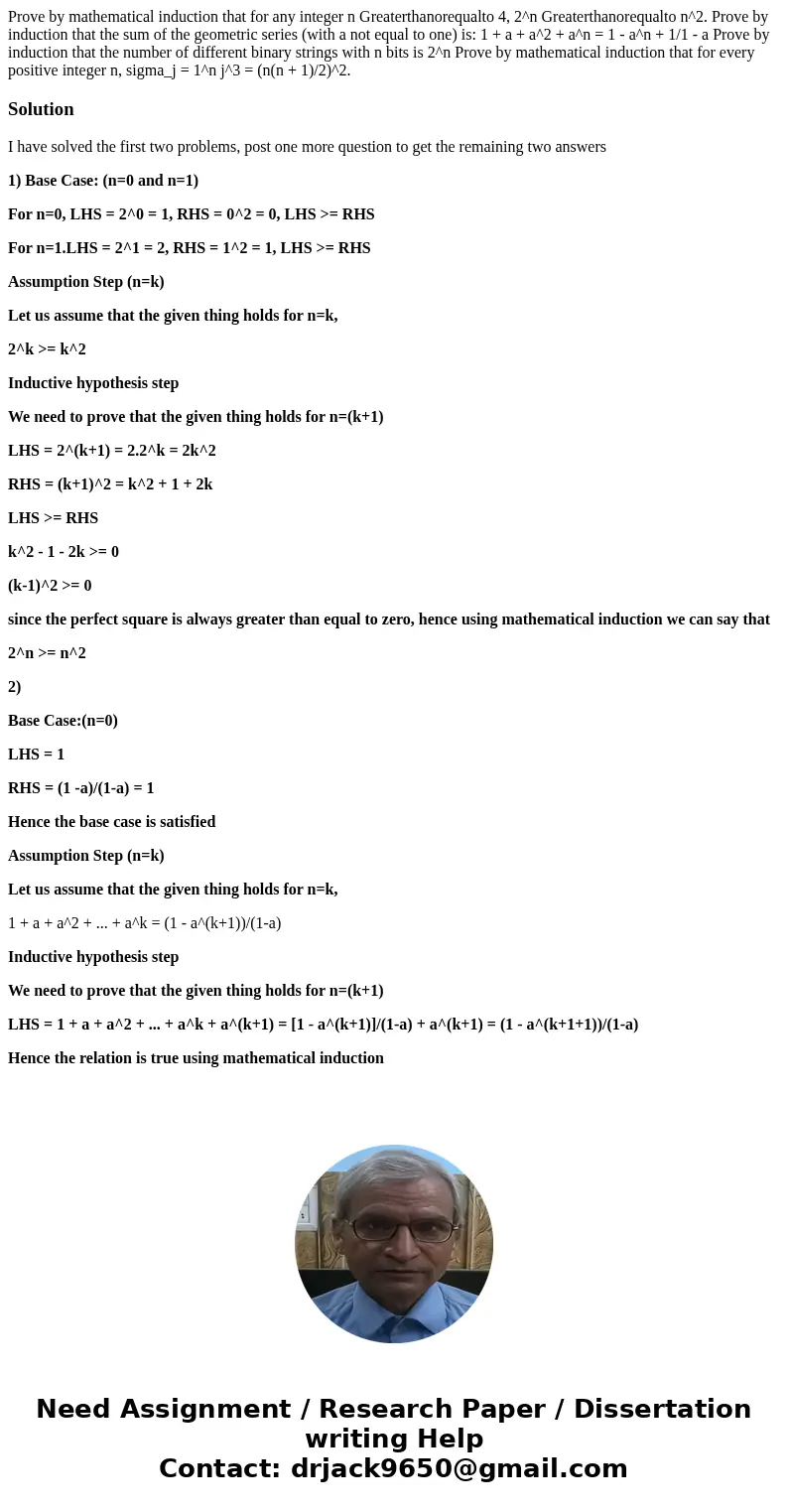Prove by mathematical induction that for any integer n Great
Solution
I have solved the first two problems, post one more question to get the remaining two answers
1) Base Case: (n=0 and n=1)
For n=0, LHS = 2^0 = 1, RHS = 0^2 = 0, LHS >= RHS
For n=1.LHS = 2^1 = 2, RHS = 1^2 = 1, LHS >= RHS
Assumption Step (n=k)
Let us assume that the given thing holds for n=k,
2^k >= k^2
Inductive hypothesis step
We need to prove that the given thing holds for n=(k+1)
LHS = 2^(k+1) = 2.2^k = 2k^2
RHS = (k+1)^2 = k^2 + 1 + 2k
LHS >= RHS
k^2 - 1 - 2k >= 0
(k-1)^2 >= 0
since the perfect square is always greater than equal to zero, hence using mathematical induction we can say that
2^n >= n^2
2)
Base Case:(n=0)
LHS = 1
RHS = (1 -a)/(1-a) = 1
Hence the base case is satisfied
Assumption Step (n=k)
Let us assume that the given thing holds for n=k,
1 + a + a^2 + ... + a^k = (1 - a^(k+1))/(1-a)
Inductive hypothesis step
We need to prove that the given thing holds for n=(k+1)
LHS = 1 + a + a^2 + ... + a^k + a^(k+1) = [1 - a^(k+1)]/(1-a) + a^(k+1) = (1 - a^(k+1+1))/(1-a)
Hence the relation is true using mathematical induction

 Homework Sourse
Homework Sourse